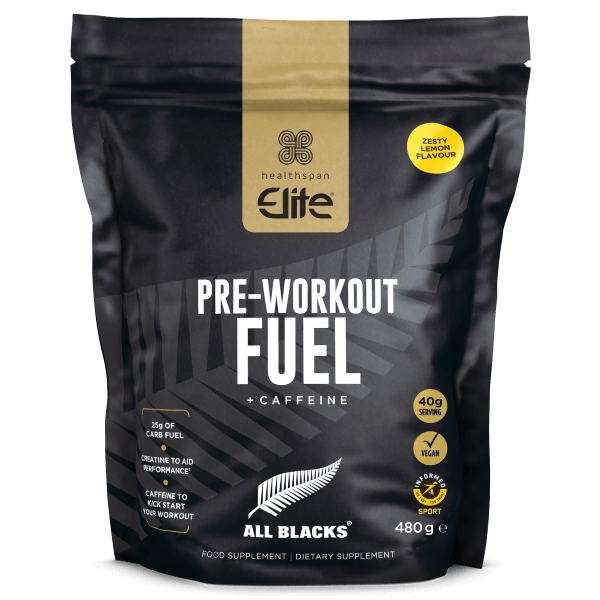Endurance training, by nature of its name, is undertaken in the pursuit of improving the amount of time you can continue to perform an activity: whether that be for a specific sport, event, or for your general health.
In endurance training, the primary energy system being used is the aerobic energy system, as opposed to the alactic and anaerobic. Aerobic systems are applied to any form of exercise that is over 3 minutes or 'submaximal training'. When endurance training, it's your aerobic system doing all of the hard work, using glycogen and lipids (carbohydrates and fats) for fuel.
Like any type of training, there are three key elements to an endurance athlete's training program: training, supplementation, and nutrition. However, these are not placed in order of importance. Training and nutrition should be at the forefront, with supplementation being there to aid your progress. With all of this in mind here is a guide on how to best prepare your body when training for endurance.
What about supplementation?
Due to the volume of training, it is absolutely essential that endurance athletes pay particular attention to their nutrition and supplementation regimes: in particular their pre-training consumption. Intra-training nutrient consumption is closely linked to optimal performance due to various factors such as timing, personal sensitivity levels, type of activity. Within endurance training, it is suggested to consume the following supplements circa 30/60 Minutes prior.
Caffeine
The goal of caffeine is to stimulate the central nervous system: leading to improved alertness, readiness both physically and mentally. Furthermore, caffeine has been said to spare glycogen stores and instead utilise fats as energy. Doing this will, in turn, save the glycogen for athletes resulting in less likelihood of glycogen depletion and muscular fatigue.
However, it must be considered that caffeine does have severe side effects which need to be considered. Caffeine can cause dehydration: a common cause of injury. It can disrupt sleep patterns and depending on sensitivity levels, can lead to anxiety or stress. To counteract this, try and stick to the recommended daily allowance or below, and balance all caffeine consumption with the equivalent in water.
Vitamin C
Throughout endurance events, one of the key desires is to keep a regular flow of oxygenated blood to working muscles. Vitamin C plays a large role in this process, acting as a precursor for nitric oxide production. Nitric oxide plays a key function within the cardiovascular system involved in endurance events.
Previous studies have shown that Vitamin C increased the activity of the enzymes that produce nitric oxide and that it helps maintain sound levels of it within the body. Furthermore, to help with vitamin C uptake, it would be worth considering a flavonoid supplement, as it will help absorption and uptake of vitamin C.
Fish Oils
Asides from the clear physiological benefits that supplements can give an athlete, it has also been suggested that certain supplements can improve various mental aspects that are key to performance such as improved mood and focus. For general brain cognitive function and improved mood, look no further than a fish oil supplement. Fish oil works to help build healthy and efficient brain cells and in the formation of the brain cells, the key to maintaining focus during a long endurance event.
In addition, many fish oil supplements also contain EPA and DHA, 'helpers' to serotonin, the feel-good hormone. DHA will allow the brain receptors to activate, and the EPA will allow serotonin to be released brain and rest of the body. With your body and mind feeling good, your endurance levels could indeed increase: preparing you for optimum performance.
How does nutrition come into play?
Endurance training is no different from any sport or activity- balance and moderation is key. The essential parts to any diet are calculated calories, proteins, carbohydrates, fats, fibre and micronutrients.
Protein
Protein is an essential part of a balanced diet and is especially important for endurance athletes. Protein aids muscle growth and recovery, essential for those training for endurance, as it allows the body to recover and rebuild after strenuous activity. To optimise protein, it's suggested that at minimum, everyone should consume their body weight (pounds), in grams of protein every day. Example, a 190-pound male will consume 190 grams of protein every day. This can vary and be increased depending on activity. Great sources of protein include chicken, turkey, fish, eggs, tuna, whey.
Carbohydrates
Although endurance training your aerobic system will use glycogen as its preferred energy source. Glycogen is the body's storage form of carbohydrates. Once this glycogen source becomes depleted, fatigue sets in, and performance starts to deteriorate. To prevent this, before your sessions consider a high carbohydrate meal or snack. Whilst amounts of carbohydrates will vary depending on goals and insulin sensitivity, carbohydrate sources break into two groups: slow release and fast release.
Slow releasing carbohydrates are low glycemic carbohydrates which take a while to release to the body, whilst fast release do the opposite. When training for endurance, mostly choose low GI foods, which will sustain you throughout your training or event. But, with clever timing, high GI foods can be a great way to give yourself a quick energy boost. Healthy sources such as simple sugars, corn, peas, carrots, and honey are quickly absorbed.
Fats
Despite carbohydrates being the preferred energy source for endurance athletes, fats will still play a very significant role in your performance. Fats come in four main forms: transfats (deep-fried foods), polyunsaturated fats (seeds, nuts, fish food), monounsaturated fats (oils), saturated fats (milk, cheese, steak). Fats benefit the hormonal system, improve body composition, enable you to absorb vitamins and, most importantly for those who are endurance training, can be a secondary energy source during long bouts of exercise.
However, if you only have time for a quick bite to eat before your training stick to carbohydrates, as fats can take longer to digest and cause interruption to a particularly heavy training session.
Don't break the chain
Think of training, nutrition, and supplementation as a synergistic chain to your endurance performance: if one link is lacking, the whole chain will break. Your pre-workout supplement and nutrition routine is key to the success of that individual training session, and more importantly in reaching your endurance improvement goal. When every aspect is on point and you are consistent with your regime, you'll soon reap the benefits and see the results in your strength, stamina, and endurance.

Elite All Blacks Pre-Workout Fuel + Caffeine
Lemon-flavoured pre-workout blend with creatine, fast-release carbs and caffeine to kick-start your workout
- 26g maltodextrin carbohydrate per serving
- Added creatine to increase physical performance
- 150mg caffeine per serving







